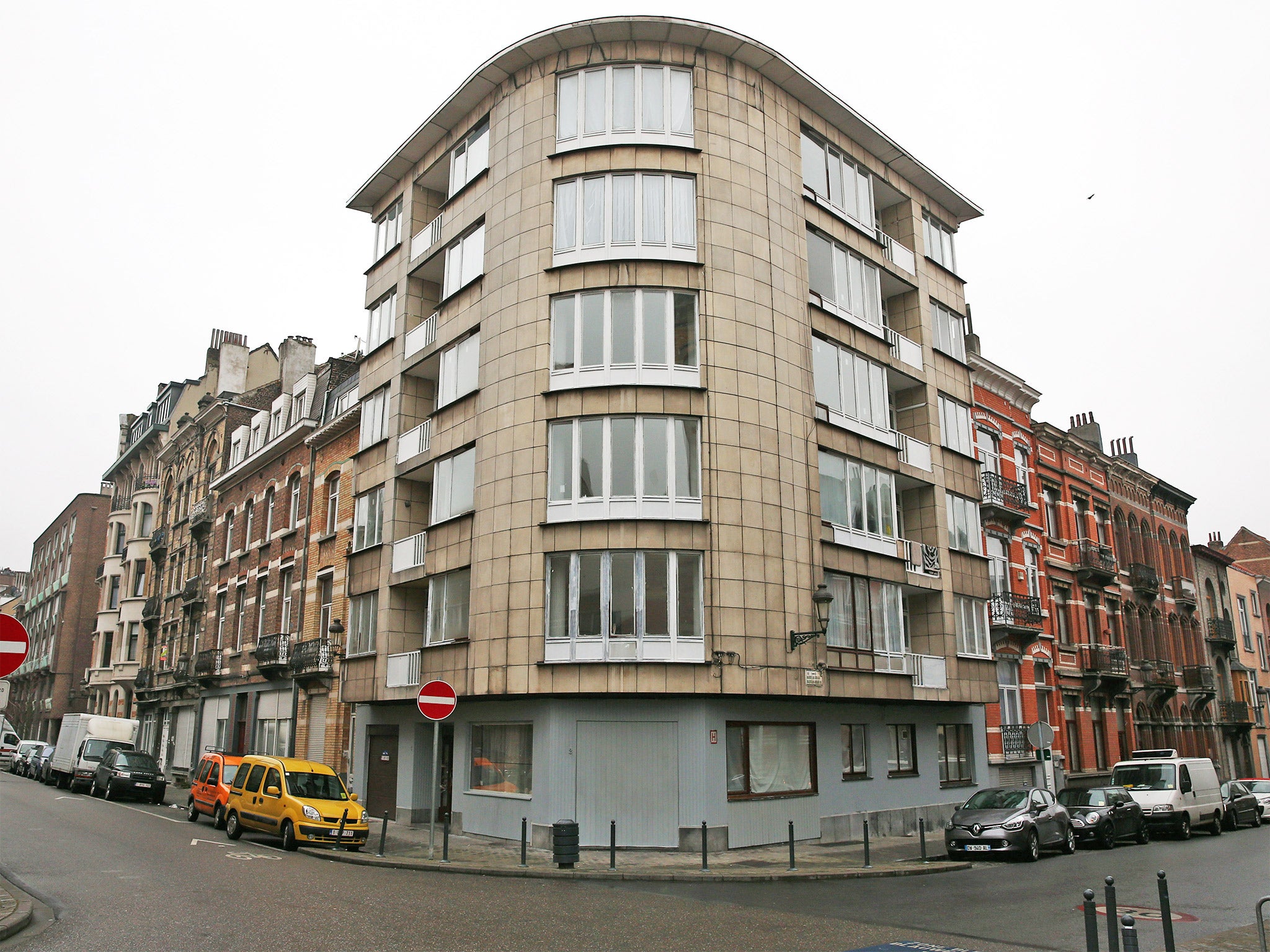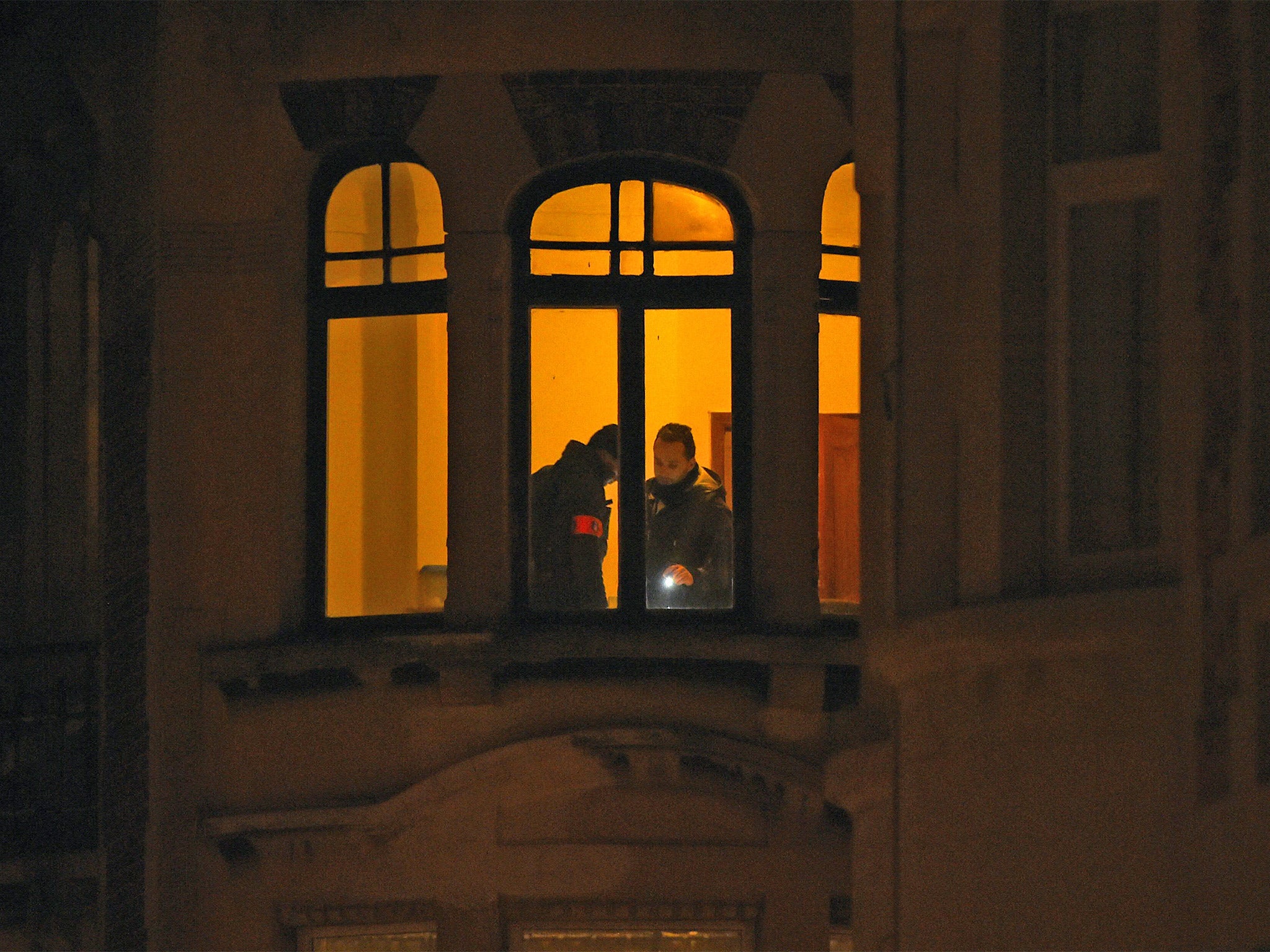Brussels attacks: Terrorists’ headquarters uncovered in a quiet and unremarkable area
The flat where the attacks were masterminded went unnoticed by neighbouring residents, who had no reason to suspect

Your support helps us to tell the story
From reproductive rights to climate change to Big Tech, The Independent is on the ground when the story is developing. Whether it's investigating the financials of Elon Musk's pro-Trump PAC or producing our latest documentary, 'The A Word', which shines a light on the American women fighting for reproductive rights, we know how important it is to parse out the facts from the messaging.
At such a critical moment in US history, we need reporters on the ground. Your donation allows us to keep sending journalists to speak to both sides of the story.
The Independent is trusted by Americans across the entire political spectrum. And unlike many other quality news outlets, we choose not to lock Americans out of our reporting and analysis with paywalls. We believe quality journalism should be available to everyone, paid for by those who can afford it.
Your support makes all the difference.No 4 Rue Max Roos is a non-descript, shabby block of flats, with nothing to suggest its significance in the terrible events which have unfolded in Brussels.
On 23 March, the building was not sealed off; there were not even police officers in the vicinity. This, however, was the place from where jihadists set out with murder on their minds just 24 hours earlier.
At a fifth-floor flat they made the suicide belts that claimed 31 lives at Zaventem airport and Maelbeek Metro station on Tuesday morning. The alert to the police came from a taxi driver who picked up three men whose behaviour had made him suspicious. They had complained because the luggage – which the cabbie was not allowed to touch – would not fit in the boot and then refused to carry any with them on the back seat. One bag had to be returned inside.
That bag, armed police discovered when they went into the building on Tuesday afternoon, contained a nail bomb and detonator. Also stored were enough chemicals to make 50 kg of triacetone triperoxide (TATP) an explosive of great lethality.
Outside, in the bin, was a laptop that provided crucial insight into the mind of one of the bombers. “I don’t know what to do, I am in a hurry, being searched for everywhere, not being safe, if it drags on it could end up with me in a prison cell next to him,” 30-year-old Brahim el-Bakaraoui had written. He had died in the attacks, as well as his 27-year-old brother Khalid.
The “him” in the note is Salah Abdeslam, the fugitive from the Paris attacks last November, who was arrested in Molenbeek last Friday. Abdeslam’s lawyer had stressed his client was providing information to investigators. “He is of prime importance for this investigation. I would even say he is worth his weight in gold. He is collaborating, he is communicating. He is not maintaining his right to silence”, said Sven Mary.
News of Abdeslam’s collaboration with the authorities had caused deep concern among some. “We have heard of some people who may fall under suspicion moving out of their homes,” said an official of an Islamic welfare group. “In Molenbeek, in particular, there is worry that the police would be heavy because the place has become associated with trouble”.
Schaerbeek does not have such a reputation. The area is more affluent, relatively mixed and its Muslim population of largely Turkish and Kosovar Albanian antecedent is not viewed as terrorist recruitment fodder.

There were just one or two Muslim names among the dozen renting the apartments at No 4 Rue Max Roos. John Valderrama, from Colombia, had a flat on the fifth floor, but he had seen only one person using the bombers’ flat. Another resident, 36-year-old Erdine – who did not want his family name published – thought four men stayed there. He had seen two of them carrying bags out of the building at around 7.30 on Tuesday morning to a taxi. “The driver tried to put the bags in the car, but they would not let him touch the bags,” he said.
Marwan Ataya, who is of Lebanese descent, watched from down the street on Tuesday afternoon as armed police moved in. “We can no longer say that it was like watching a movie, because we know that violence now in Belgium and France is very real,” he acknowledged. “ But I am surprised they weren’t discovered. I heard they were there for a month. Schaerbeek is not Molenbeek; if people saw something suspicious here they would tell the police. We are not afraid to speak up.”
Salah Abdeslam’s family home is on the central square in Molenbeek, facing the municipal hall. On Tuesday afternoon his brother Mohammed was asked if Salah was involved in the day’s attacks. He drove away saying he would be in “big trouble” if he said anything at all.
Yesterday a woman who ran a nearby shop and had been previously friendly with the media pointed towards the Abdeslam house and said: “ I am very scared to speak now. I have young children, these are very bad times.”
In the house a young man, Ayoub, did not think the times were that bad, shrugging off the increased police presence in the area. But, he pointed out, he had not been able to find work for four years, and did not have much hope of that changing.
A retired civil servant who lives in Molenbeek blamed the authorities for giving impunity to extremism. “My family came from Morocco, just like most people here. We have seen how people were allowed to spread a poisonous form of what they claimed is Islam,” he stated. “ We tried to point out the danger, how young people without jobs or prospects were being targeted, but we have had people in high places, mayors, who were terrified of being accused of racism.”
How does this leave Belgium’s Muslim community? At the Grand Mosque of Brussels, which is also the headquarters of the Islamic Cultural Centre of Belgium, an official, Ezzedine, was in despair: “It is nothing but a catastrophe. Of course, we Muslims feel we are being blamed for the actions of a few people. The feeling is apocalyptic. I don’t know how this kind of violence can be stopped. I only wish I knew.”
Join our commenting forum
Join thought-provoking conversations, follow other Independent readers and see their replies
Comments